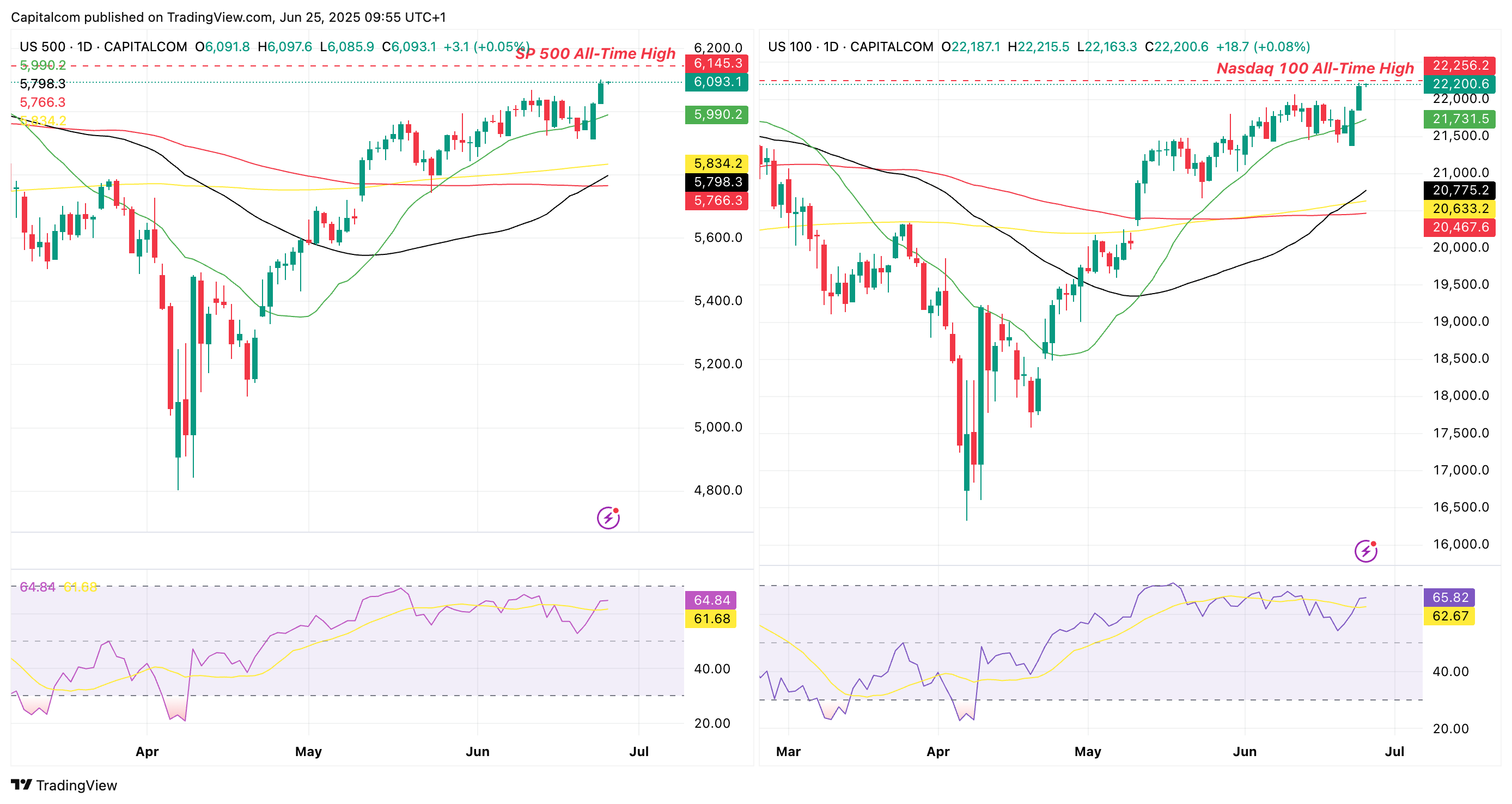US stocks inching closer to all-time highs
US stocks continue to move higher despite the rising geopolitical tensions, nearing their all-time highs
Despite heightened geopolitical uncertainty stemming from the Middle East, U.S. equity markets have displayed remarkable resilience. Both the S&P 500 and Nasdaq 100 are approaching their all-time highs, with the tech-heavy Nasdaq mere points away from setting a new record.
S&P 500 and Nasdaq 100 daily charts
(Past performance is not a reliable indicator of future results)
Risk appetite holds amid geopolitical shocks
The escalation in tensions between Iran and Israel, particularly following U.S.-linked airstrikes on Iranian nuclear facilities, initially jolted global markets. Oil prices surged, and capital rotated into traditional safe havens such as gold and the U.S. dollar. However, this reaction proved short-lived.
By the close of trading on Monday, risk sentiment had rebounded sharply. The recovery was buoyed by former President Donald Trump’s announcement that a ceasefire agreement had been reached between the two nations. Since then, the S&P 500 and Nasdaq 100 have climbed 3% and 3.8%, respectively, underscoring a broader risk-on mood in financial markets.
Surprisingly, market appetite for U.S. equities has persisted—even after the ceasefire appeared to unravel within 24 hours of being announced. While the geopolitical backdrop remains volatile, the market’s muted response suggests investors believe the conflict will remain contained or have limited economic spillover.
Still, the longevity of this rally may hinge on how tensions evolve and whether markets reassess geopolitical risk premiums if conditions deteriorate further.
Trade talks: the silent risk lurking
Meanwhile, tariff negotiations, once a dominant market concern, have been largely sidelined. Trump’s announcement of a 90-day hiatus on new tariffs initially lifted sentiment, but since then, public progress has been minimal. With the July 8 deadline fast approaching, market complacency could pose a risk.
A failure to reach meaningful agreements by that date may trigger renewed downside pressure in equities, exacerbated by the current lack of investor focus. Conversely, an extension of the deadline could provide businesses with more time to adjust, reduce uncertainty, and offer further support to global risk assets.
|for now, markets continue to climb a wall of worry, brushing off geopolitical tensions and policy stagnation in favour of a broader bullish narrative. While near-term momentum remains intact, investors should be wary of rising risks—particularly if trade talks falter or geopolitical tensions intensify further.